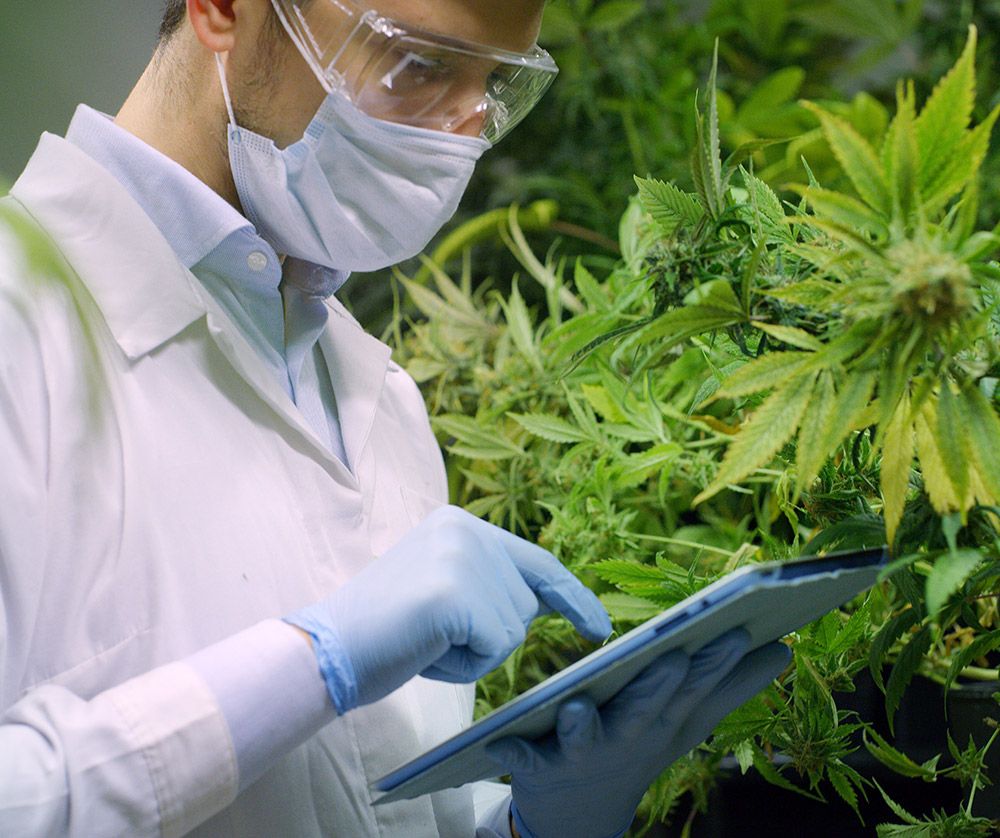
Free initial consultation
Click here to find out if you are eligible.
Check eligibility
Integro Medical Clinics can prescribe medicines to treat long term conditions associated with chronic and long term pain, Complex Regional Pain Syndrome, Arthritis Pain, Crohn’s Disease or Colitis Pain, Arthritis Pain, Back and Neck Pain, cancer pain and nausea, bladder pain, back and neck pain, Ehlers-Danios syndromes, fibromyalgia, Post Traumatic Stress Disorder (PTSD), Multiple Sclerosis pain and muscle spasm, anxiety, depression, insomnia and other symptoms associated with mental health. Cannabis-Based Medicinal Products (CBMPs) are amongst the options we can make available. CBMPs are relatively new medicines available for prescription in the UK. For more information on how they work click here.

Cannabis is a herbaceous plant indigenous to Central Asia. First records of use in medicine and textiles date back many thousands of years. Cannabis features extensively in traditional Chinese Medicine and ancient Arabic and Indian cultures. It was commonly present in over-the-counter medicines in Europe and the UK from its introduction in the 1840’s until the mid 20th Century. It then fell out of favour as more easily standardised medicines, such as Morphine and Codeine, became more prevalent.
In the early 1990’s Raphael Mechoulam discovered the Endocannabinoid system (ECS). Humans and animals have an ECS. The ECS is a system of receptors, situated on certain cells, that cannabinoids can bind to and through which they enact their medical effects.
Cannabinoids act as chemical messengers between these cells. This intercellular communication plays an important role in many bodily functions. The ECS is involved in many physiological functions including (but not limited to) motor coordination, neuroprotection, pain control, appetite stimulation and regulating our immune systems.

There are well over 100 cannabinoids. By far the most prevalent cannabinoids in the plant itself, and the most researched, are THC and CBD. At present, the vast majority of cannabis medicine products focus on these two central active ingredients.
THC and CBD are the two main active compounds in cannabis. Both have an effect on various types of pain and nociception (pain signalling) in patients. In simplest terms; THC is the main analgesic compound. CBD has an indirect effect on pain via its anti-inflammatory and immune-regulatory functions and has shown some efficacy in nociception. CBD also has an effect on how THC and other cannabinoids work. For some patients CBD can prevent THC from working effectively: for others THC and CBD working together will be most effective. The question then becomes which ratio is best for the patient in question.
Most patients with severe pain will require THC-rich medicines, especially those who are tolerating powerful pain medications such as strong opiates. THCs inebriating effects are thought to be much more tolerable than those from strong opiates and similar pain medicines, and a small amount of CBD present also helps to mitigate the unwanted effects of THC. Commonly a 20:1 ratio is used in these instances.
| THC characteristics | CBD characteristics |
|---|---|
| Regulates Nociception (Pain signalling) | Antispasmodic |
| Anti-convulsant | Anti-Inflammatory |
| Neuroprotective | Neuroprotective |
| Antispasmodic | Anticonvulsant |
| Anticonvulsant | Neuroprotective |
| Appetite Stimulant | Immuno-regulatory |
| Immuno-regulatory | Anxiolytic |
| Anti-nausea | Aids Sleep |
| Antidepressant | Antibacterial |
| Lowers blood sugar | Antipsychotic |
| Increases heart rate | |
| With moderate psychoactive effects |